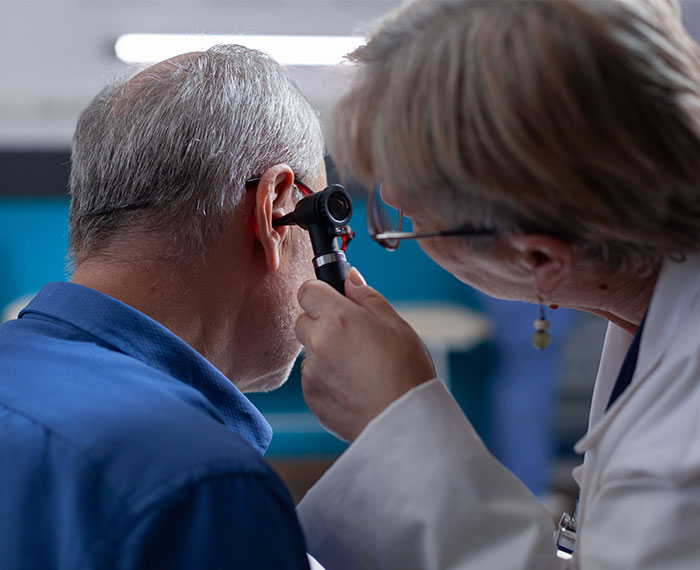
Ear Nose Throat
Otolaryngology is a branch of medicine that deals with the diagnosis and treatment of diseases in the ear, nose, throat and head and neck region. Specialists working in this field are called ENT doctors or ENT specialists. ENT specialists treat many conditions such as ear infections, hearing loss, sinusitis, allergies, snoring, sleep apnea and voice disorders.
Which Diseases Does Ear, Nose and Throat (ENT) Treat?
ENT specialists deal with a wide range of diseases and disorders. These diseases and disorders include the following:
- Ear infections
- Hearing loss
- Sinusitis
- Allergies
- Snoring and sleep apnea
- Voice disorders
Diagnosis and Tests in the Department of Otorhinolaryngology (ENT)
In the departments of Ear, Nose and Throat Diseases; diagnosis and treatment services are provided in the fields of hearing loss, ear infections, balance disorders, dizziness, tinnitus, chronic sinusitis, nasal allergies, olfactory disorders, nosebleeds, nasal congestion and problems related to the external appearance of the nose, nasal diseases such as nasal polyposis, tear gland obstructions, voice disorders, swallowing problems, throat diseases such as gastroesophageal reflux and tumors of the head and neck region.
In addition, audiological tests, middle ear pressure and reflex tests, brain stem audiometry (ERA) and auto acoustic emission tests, which are the most important screening method in the evaluation of hearing, especially in the newborn period, are performed in Audiology units.
Ear, Nose and Throat (ENT) Treatment Services
Treatment of Ear, Nose and Throat (ENT) diseases varies depending on the type and severity of the condition. ENT specialists apply various treatment methods to alleviate patients’ complaints and improve their quality of life.
Ear Related Treatment Methods
Ear infections are usually treated with antibiotics or antifungal medicines. Anti-inflammatory drugs may also be used to reduce inflammation and pain.
Hearing aids are recommended for patients with hearing loss. These devices improve hearing by amplifying sound and allow patients to communicate better in everyday life.
Tympanostomy tubes are used to treat problems such as middle ear infections and fluid buildup. In this procedure, a small incision is made in the eardrum and a thin tube is inserted. The tube allows fluid in the middle ear to drain out and so reduces the risk of infection. Tympanostomy tubes are commonly used to treat common middle ear infections, especially in children.
Stapedectomy surgery is performed to treat ear diseases such as otosclerosis. In this operation, one of the hearing bones, the stapes, is removed and replaced with a prosthesis. Otosclerosis prevents the normal movement of the stapes, leading to hearing loss. With stapedectomy surgery, hearing function can be largely restored and patients’ quality of life can be improved.
For patients with severe hearing loss, cochlear implants are an important treatment option. These devices restore hearing function by transmitting sound signals directly to the auditory nerve. Cochlear implants are used when the inner ear is unable to function and are an especially effective solution for children with congenital hearing loss and adults with severe hearing loss. These implants enable patients to communicate better in daily life and increase their social interaction.
Nasal Treatment Methods
Nasal conditions such as allergic rhinitis and sinusitis are usually treated with antihistamines, decongestants, nasal sprays and corticosteroids. Antihistamines reduce allergic reactions and relieve symptoms such as runny nose and itching. Decongestants relieve nasal congestion and help open the sinuses. Nasal sprays, applied locally, reduce inflammation in the nose and make breathing easier. Corticosteroids control allergic and inflammatory reactions with their powerful anti-inflammatory properties.
In cases such as chronic sinusitis and nasal polyps, endoscopic sinus surgery can be performed. This surgical method allows the sinus canals to be opened and the infection to be cleared. Endoscopic sinus surgery is a minimally invasive method, allowing patients to recover faster and return to their daily activities in a short time. Surgical intervention can significantly improve the quality of life of chronic sinusitis patients and reduce the risk of recurrent infections.
Septoplasty surgery is performed in patients with breathing difficulties due to nasal septum curvature (deviation). This procedure involves correcting the nasal septum and allows patients to breathe more easily. Septoplasty surgery is an effective treatment method to eliminate problems such as nasal congestion, snoring and sleep apnea. This operation improves the quality of life of patients, making their daily lives more comfortable.
Throat Related Treatment Methods
Infections in the head and neck area are treated with antibiotics and other medicines. Medication is an important first step to prevent the spread of infection and relieve symptoms. Antibiotics treat bacterial infections, while anti-inflammatory and painkillers help reduce pain and swelling. Correct and regular administration of medication ensures that the infection is completely eliminated.
Surgical intervention is a common method for treating serious conditions in the head and neck region. Thyroid surgery is performed in patients with nodules or cancer in the thyroid gland. This operation involves removing the cancerous tissue or nodule and helps the thyroid gland to function normally. Neck dissection is the removal of lymph nodes to prevent the spread of head and neck cancers. This surgical intervention reduces the risk of cancer cells spreading to other areas and increases the patient’s chances of recovery. Tumor surgery is the surgical removal of cancers in the head and neck region. This procedure ensures that the cancerous tissue is completely removed and the cancer is under control.
Radiotherapy and chemotherapy are also used in the treatment of head and neck cancers. Radiotherapy uses high-energy beams to destroy tumor cells and stop the spread of cancer. Chemotherapy is a treatment method using drugs that target cancer cells. These treatments help control the cancer by preventing tumor cells from growing and dividing. Radiotherapy and chemotherapy are usually applied together with surgical interventions and increase treatment success.
The methods used in the treatment of ENT diseases may vary depending on the patient’s condition and the type of disease. Correct diagnosis and appropriate treatment play a critical role in improving the quality of life of patients. ENT specialists try to achieve the best results by creating customized treatment plans for each patient. Regular follow-up of patients during the treatment process and updating treatment plans when necessary accelerates the healing process and helps patients regain their health.



